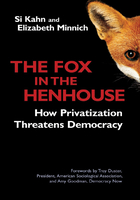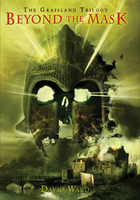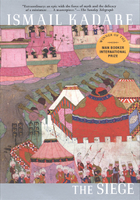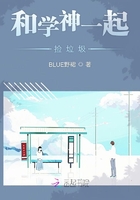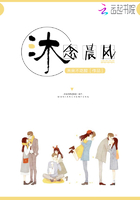Life can be, well, a bitch when you're in the wrong career. I don't need to tell you how miserable it feels to spend your day in a place you don't want to be, doing work that your heart's not in. But I do need to tell you that it's possible to change. This book will show you how.
I know you've got good reasons for hesitating to take the leap. It's work to change careers, right? Who's got the time? You've got a family to support. You might have to start at the bottom and make less money. Besides, you don't know what else you'd do aside from what you're doing now.
But something has happened in your life to get you thinking seriously about making a career change this time. It's a good thing you're paying attention—because the last thing you want is to look back at your life and regret what you could have done but didn't.
Paying attention to your dissatisfaction and then taking the right steps to changing careers can change your life. When you create something that fits who you are, your life can be blissful, joyous, prosperous and meaningful—with you in control. Instead of counting the hours until each day ends, you will count your blessings that you get to do this work every day.
We'll take one step at a time to help you explore making a change and then be smart in doing it. This book isn't about just switching jobs or, as so many people say, finding "what's out there" or "having something to fall back on." It's about searching inside yourself and then searching for work that fits that self.
This can lead to a wise career change to make your life better. So this book is about how to create a career that fits your life and who you are.
To do that, I'm going to give you some very specific questions and exercises to complete along the way. You may not use every single piece of information you dig up. But following this structure is a process. And like most things, the process is the way by which you actually create the result you want. Although this process is systematic, it's also very organic. Sometimes events that take place or things you learn about yourself along the way create your path. You'll see how this happens as you meet people throughout the book and hear about the ways in which significant events or other discoveries have affected their thinking.
In the initial steps, we'll do some soul-searching, "blue-skying" and "what-iffing." Each step will build on the next. By carefully following each step, you will create your new, concrete career objective based on who you are—not who others think you should be.
Then we'll bring it back to earth and deal with other concerns, like how to make it happen. The worst thing you can do when making a career change is to start focusing on how you're going to make a change before you know where you're headed. It will only confuse you.
You will probably come up with some very cool ideas as you go through this process. A word of caution: You'll be tempted to start judging your ideas and thoughts as they come to you. That's natural but not smart.
In my first consultation with a 50-year-old teacher, she told me, "Someone suggested I become a travel agent. But I don't think that's realistic. I've always wanted to be around the outdoors, but I have no experience, so that's probably a stupid idea."
If you immediately focus on what's realistic or unrealistic and other reasons why you think you can't even explore an idea, you will get nowhere. So how shall I put this nicely—please keep your opinions to yourself until we get to Step 8, OK? Then you can talk about everything that worries you.
"I didn't have a very good reason for becoming a dentist.
I was 13 or 14 and I liked my dentist. He was one
of the few male influences in my life. My parents were
divorced. He'd make a big fuss over me when
he'd see me. He wore a white coat. It was prestigious."
MORRY, a dentist for 36 years
Let's just imagine what could be for now. I promise, this book has a healthy mix of idealism and realism. You will need both to be successful in this process.
What's a Career Anyway?
Before we go further, let's focus briefly on what we're talking about here, and exactly what you're thinking about changing.
I define a career as a combination of:
? The particular occupation you choose to pursue and train for that is a significant part of your life and may or may not fit who you are
? The activities, experience, and knowledge you accumulate; skills you develop and progress you make while you're in that occupation
Let's say you choose to and are trained to be a physician. Throughout your career, you will have various jobs that comprise tasks and activities that physicians do. Early on, you might patch up people's injuries working in a hospital emergency room. Then you go into private practice, where you examine patients, analyze health issues and prescribe treatments. You could get a position as a physician for a corporation. Along the way, you take more classes and accumulate more knowledge. You might become a health care consultant to an insurance company. I know one physician who is a lexicographer—he edits medical dictionaries.
That's your potential career: a progression of particular roles and jobs physicians can do—all the while building your reputation, accumulating knowledge and fine-tuning your skills.
Many people—you might be one of them—don't put the kind of thought they need to into a choice of career. A satisfying career requires you to look inside yourself to know what type of work fits you. When the work doesn't fit who you are, you start thinking, "I need to make a career change."
WHAT A CAREER CHANGE MEANS
Most people who claim they want to make a career change really don't mean it. Take the accountant who said, "I have to make a career change. I can't work in health care anymore. I'm thinking of going into manufacturing."
"Manufacturing?" I asked him. "What do you want to do there? Sell products, oversee operations or what?"
"No!" he exclaimed. "I want to be an accountant!"
As you can see, he didn't mean what he said when he declared he wanted to make a career change. He still wanted to do the things an accountant does, so it's not a career change. He just wanted to do it in a different industry. That's an industry change.
It's hard to get everyone to agree on the definition of a career change. Even the U.S. government throws up its hands and says, in so many words, "Beats us." The Bureau of Labor Statistics states on its Web site that it has never attempted to estimate the number of times people change careers in the course of their working lives because "no consensus has emerged on what constitutes a career change."
For example, the bureau cites the case of the Web-site designer who was laid off from a job, worked for six months for a lawn-care service and then found a new job as a Web-site designer.
"Might that example constitute two career changes?" the bureau asks. "If not, why not? Is spending six months at the lawn-care service long enough to consider that a career? How long must one stay in a particular line of work before it can be called a career?"
Time is not really the defining factor for a career. Some people work 20 years and never have a career. They have jobs. Bill, a 30-year-old unemployed worker who called me to say, "I need to make a career change," was one of those.
He'd had five jobs in eight years, including a sales role in a staffing service company, a customer service job in a financial services firm, a manager in a pizza place and a supervisor in a manufacturing plant. What he really needed was to get serious about figuring out what particular career he wanted to pursue—one that fit who he was and could be a significant and satisfying part of his life.
If you are someone like Bill, who is trying to figure out how to start his career, these nine steps are just what you need too.
So first let's define what a career change is.
My definition of career change is conducting a search of yourself to move toward work that's more fitting to who you are.
This means the work you will do:
? Uses your strengths
? Challenges you
? Is meaningful to you
? Fits your values and personality
? Fits into your life and the future you want to create
Your present or former career may or may not have used your strengths. You may have found it challenging and meaningful once—or never. It may have fit your life at one time.
But if you're going to make a career change now, you want to make one that incorporates these five things I just listed—as much as you can. They may not all be equally important to you and you may not get 100 percent of what you want. But these are the elements of a satisfying career.
This change may require new training. It may be related to the industry you're in now. For example, you might be a health care administrator who wants to be a nurse. Even though you're staying in the industry, you'll be making a career change because:
Your roles will be different.
A hospital administrator sets policies and procedures, oversees a staff that handles operational issues and works with the clinical staff of the hospital. A clinical nurse assists patients and doctors.
Your activities will vary.
As an administrator, you deal with day-to-day operational issues in your facility. You attend meetings with the community, staff or board members and develop budgets and interpret reports. As a nurse, you might be in the operating room or at patients' bedsides.
You'll have different experiences, use other knowledge and perhaps develop and use new skills.
As an administrator, you know about management principles and practices, budgets, cost containment, government regulations, giving presentations and managing. Your key skills might be problem solving, planning, leading and communicating. As a nurse, your knowledge encompasses diseases and medical procedures and techniques, and your skills could include observing, reporting, collecting samples, performing laboratory tests, feeding, massage and applying dressings.
You'll progress differently and build a new reputation.
As an administrator, you may get a graduate degree, move to a larger facility or decide to take your expertise to a health insurance company. As a nurse, you may move to a doctor's office, surgical center, health care corporation or home health care service. You might add on management responsibilities or become a nurse-midwife or nurse anesthetist. I know of one nurse who runs her own tattoo removal company.
This is not to say that you will throw your former knowledge and skills out the window. You may end up utilizing many of the skills you used in your other career. Having been a hospital administrator, you have a lot of valuable experience and knowledge that will enhance your nursing career. Many skills are transferable to new careers. Although you are in the same industry, you are making a career change.
WHAT'S TUGGING AT YOU TO CHANGE?
Various things inspire people to make a career change:
A life event such as a divorce, turning 40 or 50, having a child, the completion of raising a family, becoming physically unable to do your present line of work or getting fired or laid off
Although some of these events aren't ones people choose, they can be a catalyst for something better. When Marie was "downsized" at her magazine, she said, "It was the best thing to happen to me in a long time. For months, there was a nagging suspicion that I should make a change, but I did not until I was forced. I knew in my heart I would bounce back and that this was meant to be."
As a result, Marie ended up creating a new career as a television producer, which she loves.
Linda had been in sales and marketing a good part of her career. But because of a movement disorder called cervical dystonia, she found it difficult to do her job, which required a lot of standing and moving around. She went on to create a new career for herself in which she consults with people who have experienced personal setbacks.
A woman I met at a writer's conference told me that she was changing careers because of how she felt after her father died. "It changed my whole outlook on life," she said. Instead of working in marketing for a company, she is pursuing a freelance writing career.
"Since I changed careers, I hate to go to
sleep and I can't wait to wake up in the morning."
GARY DICK, owner of Gary's Classic Guitars
Retirement
A lot of retirees are looking at second careers. In fact, older workers—age 56 to 64—are predicted to make up 52 percent of the U.S. workforce by 2010 and those 65 and older are predicted to make up 30 percent of the workforce by 2010. Many will work in new careers. The AARP (formerly known as the American Association of Retired Persons) reports that 68 percent of workers age 50 to 70 expect to continue to work or never retire at all.
A 2005 study on aging and retirement conducted by Harris Interactive with HSBC and Age Wave showed that traditional retirement is a thing of the past. Among the more than 11,000 people interviewed worldwide, the study found that 80 percent want to scrap mandatory retirement and 75 percent want to keep working in their maturity.
William Safire is one of them. After writing more than 3,000 newspaper columns, Safire wrote his farewell column explaining why he was ending the column at age 75 and moving on to something else. He quoted two people who had given him advice about work.
Nobel Laureate James Watson told him, "Never retire. Your brain needs exercise or it will atrophy." And ad man Bruce Barton advised, "When you're through changing, you're through."
"Combine those two bits of counsel—never retire, but plan to change your career to keep your synapses snapping—and you can see the path I'm now taking," Safire wrote. He went on to explain that he's taking on the chairmanship of the Dana Foundation, a private philanthropic organization. "Retraining and fresh stimulation are what all of us should require in 'the last of life, for which the first was made.'"
The fact is that most work of the future will not require manual strength, but brain power instead. Many older workers wanting to stay mentally sharp and active may slow down and work fewer hours, but they will be more inclined to try new things that will offer more fulfillment in their next phase of life.
An unexpected experience that alters your course
Take Dr. Mark Rubin, who originally had been heading down the path to become an oceanographer when a bout of seasickness changed his plans. According to an article in Dermatology Times, he traveled to Nicaragua as a volunteer to help deliver a vaccination program to tiny villages. That's when Rubin decided to devote himself to people's medical needs. When he traveled to Thailand to work for the Ministry of Public Health in Bangkok, he was introduced to tropical medicine, which sparked his interest in diseases of the skin. As a result, he became a dermatologist.
Rabbi Edgar Weinsberg of Massachusetts also experienced an unexpected change. Due to a merger of synagogues, he had left his congregation of 21 years. So, at age 61, he decided to move to Florida to be close to his son and daughter-in-law and begin the process of finding a new role for himself.
Lost enthusiasm for your work—perhaps due to forces beyond your control
One of my clients had practiced industrial labor law for 20 years. But due to changes in the market and the geographic area where he lives, the practice was drying up. He was also disenchanted with the whole legal field and felt it was time for a change.
"I don't like all the increased pressure to produce more and more revenue every single year," he said. He also felt the law practice had changed from the past, "when it was a bit more civil and less cutthroat."
Troubled waters can be brewing in your industry or at your company. Another client had sold highly engineered motors for 15 years. He wasn't jumping for joy anyway, and when the manufacturer he worked for moved overseas, he saw the writing on the wall for the whole industry and decided it was a good time for a change.
When actor Peter Riegert came to my city to screen the first feature film he had directed, King of the Corner, he talked about what made him want to direct after 35 years of acting. "Survival," he said. "I needed to save my life." Although he's still acting and enjoys it (he stars in this film), he expressed the same longing of many career changers: The desire to be energized by doing something new.
A desire for more
You may want more quality of life, flexibility, freedom, challenge or meaning in your work. Some people feel burdened by their job. Others are bored. Some people are intent on getting somewhere, making something important happen or making something out of themselves. Many people just want to feel more in control. This usually comes down to having a career you enjoy and that allows you to have time for family or other interests. From these folks I often hear, "I want a life!"
A brush with death, a debilitating illness or physical ailment
Some professions are downright hard on the body. Even with no injuries, most ballet dancers quit between age 32 and 38. Other times, illness causes change. Diane hosted a show for the Home Shopping Network when she developed lupus and landed on disability. She returned to school, earned her doctorate at age 51 and became a psychologist. After Jim, a businessman in Georgia, had a massive heart attack and heart transplant, he decided he wanted to become an English teacher.
Leonard, a software analyst who sat in a cubicle all day, was 21 and weighed 310 pounds. "I woke up one day with swollen ankles and decided I had to do something about it."
But it doesn't have to come to that. Sometimes things just aren't clicking—or never did. A Gallup poll found that 55 percent of employees have no enthusiasm for their work. Fifty-four percent said they feel they are not utilizing their skills in their current job. Many people simply fall into their line of work and never take the time to explore who they are and find work that meshes with that.
Other people finally pay attention to something that's been tugging at them. They may not know exactly what they want to do next, but they know what they're doing now isn't it. They make up their mind to focus on how they can become exceptional rather than just focusing on survival. They decide to make a career choice for themselves instead of just for the paycheck.
Alan, a dissatisfied but financially successful sales representative in California, called me to figure out how to make a change. He said, "I've gotten the money part out of my system. I'm at a point where it's about my life now and not accumulating more stuff."
Another client, now deceased, worked as a dentist for 36 years. He told me, "Everything had become an effort. I just didn't have it in me to keep up with the technology of dentistry anymore. I had to do 42 hours of continuing education every two years. I'd sit in the classes for six to eight hours with everyone around me pontificating on drilling and new filling material. I'd be in the back of the room daydreaming and reading books on psychology. The nagging turned into pangs. I had to take pills to sleep and pills at the office to relax."
At 62, he sold his practice. He said, "It felt like a burden was lifted and I knew I never wanted to go back there again."
John, an information technology consultant, came to me at age 30. "I had just finished the business plan for my company," he said. "It was sitting next to my computer and I didn't want to do anything with it. My heart wasn't in it. In the back of my mind, I sensed that there was a better career path for me."
Another client who worked in marketing said he sat in his office, which had been converted from a janitor's closet, staring at the walls. "I was dying to work with people and help them somehow. I felt isolated and depressed. When I woke up every morning, I can honestly say life felt like a real bitch."
"Some people say they haven't yet
found themselves. But the self is not something
one finds; it is something one creates."
THOMAS SZASZ
Desire to change can happen at any age. I hear from plenty of 30-year-olds fretting about what they're doing with their life. For nearly 20 years, people of all ages have come to me for help to make a career change. But I have noticed that more people have considered a career change since September 11, 2001—a day that made them stop and examine their lives and realize that life is too short to spend in a career your heart is not in.
HOW SERIOUS ARE YOU?
Your next career probably won't come to you in a lightning bolt—although on television, for example, it can be depicted that way. On one episode of the television comedy show George Lopez, George's wife is lamenting that she always thought she'd have her own business and become a millionaire one day. So George builds her an office in their garage, equipped with a cubicle that houses a computer, phone and file cabinets. She is touched, but doesn't know what she'd do in her cubicle.
"Trust your gut," George says. But she hasn't a clue. Then she remembers that she forgot to cancel an order for something for a wedding she is planning. And—voila!— she exclaims, "That's it! I'll be a wedding planner! I love organizing and working with details." In less than one miraculous moment, she had figured out her new, fabulous career, in which she'll make gazillions of dollars and love every minute.
Fat chance of that happening. Most likely, you will need to commit to a step-by-step process to discover what you want and go after it. This will include soul-searching and research—a word many people cannot bring themselves to think about.
It is tempting to think that it would take less. I was giving a speech once and a man in the audience said, "There must be a way to just be able to figure out how to blend your life into a career you'd like. There just must be an easy way."
There is an expectation that every whim can be satisfied with the touch of a button and that you will find instant gratification with everything—including a new career. But if you are serious about changing your life, you will need to be tolerant of a process that requires patience.
So let's see how serious you are.
On a scale of 1 to 4, (with 1 meaning you strongly disagree and 4 meaning you strongly agree), rate the extent to which you agree or disagree with the following statements:
———If it's going to take more than 30 days to make this change, it could be a problem.
———I hate doing research and probably won't do it.
———If I have to think, forget it.
———If I have to use my imagination, forget it.
———If I have to think about my feelings, forget it.
———I do not want to go out and talk to people.
———It's hard for me to go against others' wishes and the status quo.
———I'm not very good at setting and keeping goals.
If you scored between 24 and 32, your commitment level is not there. You won't do a thorough, strategic job of exploring a career change. Odds are low that you will find a new career that is meaningful, fruitful and satisfying to you.
If you scored between 8 and 16, you're realistic about what it's going to take:
? A reasonable time line
? Research
? Introspection
? Imagination
? Input from other people
? Going against the grain of what others may think or what you've been told you "should" do
? Facing your fears
? Hard work
? Willingness to set a goal and stick with it faithfully
HOW MUCH DO YOU NEED TO KNOW TO BEGIN?
Do you know exactly what you want to do in your next career? Don't have a clue? It doesn't matter. What matters is that restlessness that's telling you to: 1) do something different—at least investigate it; 2) do that thing you know you want; or 3) figure out what you do want.
Throughout this book, I will give you tasks and suggest what you'll learn from a particular activity. Whether you should perform a certain activity and what you'll figure out from it will depend on whether you know what you want to do next, don't know or have some ideas. To understand how my references apply to you, it will be helpful to know where you stand at this moment. So, check the category that fits you best:
Which are you?
I know exactly what I want to do next. (Crystal Clear)
I don't have the slightest idea what I want to do next. (Clueless)
I've got some ideas, but … (Fuzzy)
If you identified yourself as "Clueless," you are like the majority of people who tell me they don't know what they want to do next. This process will give you plenty of ideas and help you connect the dots.
If you identified yourself as "Fuzzy," this process helps you further clarify whether your ideas are a good fit. I once had a client who, after going through this process with me, decided that she was in the right field after all. She decided to remain a teacher.
If you're "Crystal Clear," the process is a good test to see if what you think you want is on the mark. It can also help you expand the ideas you now have about your next career and show you how to go about discovering your new career position.
THE BEAUTY OF MAKING THE RIGHT CHANGE
What could be finer than having a career in which:
? Your work feels important and meaningful
? You're challenged
? You feel like you're being yourself
? You're appreciated, rewarded and valued for your contribution
? There are a variety of things you like to do, and do well
? You have the flexibility to do your job in a way that fits your life and values
? You can see tangible results from the work you do
F. Scott Fitzgerald said, "There are no second acts in American lives." He never met you.
This is what most people say they want in their career. Don't you? If you stop and say, I want to create that for myself—to one degree or another—and then do it, you will have a sense of control. You will feel committed to something you believe in. With that will come less stress, and you will be more likely to see things in your life as challenges instead of burdens.
Do you thirst for more? Do you wonder, "Is this all there is?" Are you tired of living a lie or biding your time until you can retire and have the life you want? Then my nine steps will help you create more meaning, more control and less stress in your life and work.
I am confident you have the creative energy and power to fan that spark inside you. In fact, as I heard Rabbi Norman Cohen of Minneapolis say at a dear friend's funeral, you have the obligation to tend to that spark in you and fan it into a flame that will light up your life and the lives of others.
Remember, you also have the freedom to choose. Many of us were taught at a very young age that the circumstances you find yourself in dominate your life and the direction you go in. But if you want to change the course of your life, you need to understand that even when you feel you have none, you always have a choice.
Ready to begin?

